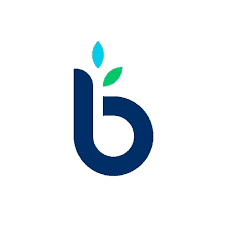
Need help getting funds? Get matched with lenders instantly
Answer some basic questions in less than 3 minutes with no impact to your credit score and compare multiple offers. No commitment, no hassle.
Get Matched💳 Save money on credit card processing with one of our top 5 picks for 2026
Can you use a personal loan to start or fund a business? Personal loans for business use are surprisingly easy to get, if you know where to look.
Using a personal loan to start a business can be a practical way to access funding without an established business history.
Because many business loans require time in business or business credit, startups often face limited options. A personal loan bases approval on your personal credit and income instead, allowing you to bypass those requirements and secure financing sooner.
Table of Contents
Personal loans can often be used for business expenses and don’t require an established business history. While many business loans require six months to two years in operation, personal loans have no time-in-business requirement.
Instead, approval is based primarily on your personal credit and income, making personal loans a practical option for startups and new business owners.
| Personal loans | Business loans | |
|---|---|---|
| Borrowing amounts | Generally low | Can be low or high |
| Credit check | Yes | Usually (credit score requirements may be low) |
| Minimum time in business | N/A | At least 6 months |
| Can be used for business expenses | Yes (check with lender) | Yes (some may have restrictions) |
| Liability | Personal assets | Business assets |
Both personal and business loans are usually installment loans, meaning you receive a lump sum and repay it in fixed payments over time. The key differences come down to eligibility, loan size, and risk.
To qualify for a personal loan, lenders focus on your personal credit and ability to repay. Borrowers with a credit score above 600 and a debt-to-income (DTI) ratio under 46% generally have the best approval odds.
Before applying, check your credit score and review your DTI. If you fall short, improving credit or lowering existing debt can expand your options and reduce costs.
Personal loan applications are straightforward. Most lenders require:
Because approval isn’t tied to business performance, no business financials are typically required.
If your lender allows business use, a personal loan can cover most common business expenses. This flexibility makes personal loans especially useful for startups and newer businesses that don’t yet qualify for traditional business financing.
A personal loan can be a useful funding tool, but it isn’t right for every situation. The key is knowing when it fits — and when it doesn’t.
Once you’re ready to apply for a personal loan for business, it’s time to find the most affordable personal loan with terms that work best for your financial situation. You can get started with our picks for best personal loans for small business.
Looking for alternatives to personal loans for business? Check out our picks for best small business grants.
Want to help shape the future of the Merchant Maverick website? Join our testing and survey community!
By providing feedback on how we can improve, you can earn gift cards and get early access to new features.
 Our expert reviewers found BusinessLoans.com to have a quick and easy application process alongside excellent support and guidance for borrowers.
Start A Quick Application
Our expert reviewers found BusinessLoans.com to have a quick and easy application process alongside excellent support and guidance for borrowers.
Start A Quick Application
Help us to improve by providing some feedback on your experience today.
The vendors that appear on this list were chosen by subject matter experts on the basis of product quality, wide usage and availability, and positive reputation.
Merchant Maverick’s ratings are editorial in nature, and are not aggregated from user reviews. Each staff reviewer at Merchant Maverick is a subject matter expert with experience researching, testing, and evaluating small business software and services. The rating of this company or service is based on the author’s expert opinion and analysis of the product, and assessed and seconded by another subject matter expert on staff before publication. Merchant Maverick’s ratings are not influenced by affiliate partnerships.
Our unbiased reviews and content are supported in part by affiliate partnerships, and we adhere to strict guidelines to preserve editorial integrity. The editorial content on this page is not provided by any of the companies mentioned and has not been reviewed, approved or otherwise endorsed by any of these entities. Opinions expressed here are author’s alone.
 Our expert reviewers found BusinessLoans.com to have a quick and easy application process alongside excellent support and guidance for borrowers.
Start A Quick Application
Our expert reviewers found BusinessLoans.com to have a quick and easy application process alongside excellent support and guidance for borrowers.
Start A Quick Application